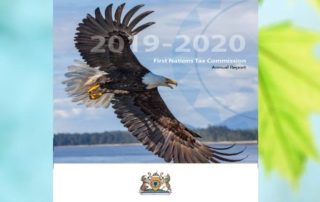-
FNTC: NEWS STORIES
COVID-19 Pandemic Emergency Response Standards, 2020 [Consolidated 2021-03-18]
COVID-19 Pandemic Emergency Response Standards, 2020 [Consolidated 2021-03-18]
Canterbury and Canada combine in online Indigenous Economics course
A cohort of First Nations students from the Tulo Centre of Indigenous Economics in British Columbia, Canada, and students from the Ngāi Tahu Research Centre at the University of Canterbury, Aotearoa New Zealand, have been studying Indigenous Economics together virtually, in a pilot course. The Ngāi Tahu Research Centre (NTRC) collaborated with the Tulo Centre to deliver a unique course in Indigenous Economics with 16 First Nation Canadian students joining a Ngāi Tahu cohort of 16 late last month. “The COMPLETE STORY
Proposed Procedures Respecting the Approval of First Nation Local Revenue Laws, 2020
Procedures are established by the First Nations Tax Commission (Commission) to provide transparent and efficient processes for the approval of local revenue laws by the Commission to assist the Commission in fulfilling its statutory obligations under the First Nations Fiscal Management Act (the “Act”). Under the Act, the Commission reviews and approves laws. Subsection 35(2) of the Act provides that the Commission may establish procedures respecting the “submission for approval” of local revenue laws and “approval of those laws.” In COMPLETE STORY
Chief Commissioner Speaks to Radio New Zealand
Chief Commissioner Jules discusses the importance of First Nation jurisdiction with Radio New Zealand Host, Julian Wilcox. Click here to listen to the Audio.
The First Nations Tax Commission Releases its 2019/20 Annual Report
The Annual Report provides an update to First Nations, taxpayers and the federal government on the FNTC’s progress in achieving its vision and highlighting how our work improves First Nation communities and supports expanding First Nation tax jurisdiction. Download the Annual report.
Student Spotlight: Sue Ellis, Akisqnuk First Nation
Sue Ellis, Finance Supervisor, Akisqnuk First Nation. Why did you sign up to take the Certificate in First Nation Taxation Administration Program? The role of tax administrator fell into my lap after our Sr. Finance Officer left. I didn’t know what I was doing the first year and am so thankful for all the help that I received from Nicole Casimel at TAS, Marie Potvin and Tracey Simon at FNTC. I could NOT have done it without these ladies’ help. COMPLETE STORY




